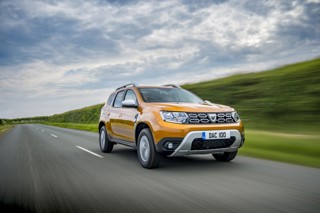Car buyers face higher running costs following the introduction of new WLTP CO2 emissions test figures from today (April 1).
The new test applies to vehicles registered from April 1 2020 and, on average, leads to a 20% increase in reported CO2 emissions.
Vehicle Excise Duty (VED) increases by around £300 per year, for the average car, according to Cap HPI.
Company car drivers are also affected, as CO2 emissions directly affect the benefit-in-kind (BIK) rates.
Average C02 values increased by 26 grams, from 135 under NEDC, to 161 under WLTP. The MPV sector saw an increase of 33% followed by large executive, 30% and SUV, 29%. The smallest percentage increase was seen in the supercar sector at just 8%.
Cap HPI revealed the figures as it rolls out its WLTP Emissions Service API which gives dealers and fleets a solution to manage dynamically configured vehicles, and content ,collation of new, static values within new vehicle data (NVD).
Jonathan Clay, head of vehicle identification at Cap HPI, said: “The combination of the introduction of WLTP and a new tax regime aimed at encouraging private drivers and fleets to make greener motoring choices has driven up costs across the board. But it’s also clear that some sectors are more affected than others, which will undoubtedly drive a change in the shape of the UK car parc.
“We have led industry efforts to manage the changes and worked closely with partners across the industry to ensure customers have the data they need to navigate the transition to WLTP CO2 emissions values.”
WLTP comes into force in the UK on 1 April for VED and 6 April 2020 for BiK. Vehicles registered after this date will be taxed using the new WLTP CO2 emissions values. The values will relate to the specific configuration of an individual vehicle, taking optional equipment fitted to the vehicle into account for the first time.
The new test was designed to provide more accurate, real world, figures. Initially, only the fuel economy results were published, to provide better clarity for buyers, but now the full test results are being used for tax purposes.
Cap HPI says large executive vehicles will see the most substantial increase in VED at £546, followed by executive, £459, and MPV, £455. City car and supercar saw the smallest increases with £52 and £40, respectively.
On average diesel vehicles saw CO2 increase by 30 grams while petrol-hybrid vehicle rose by 29.3 grams. Diesel plug-in hybrids saw CO2 decrease by 1.9 grams on average.
The diesel sector saw the largest increase in VED of £423 on average, followed by petrol, £232, and petrol hybrid, £180. Petrol plug-in hybrid only saw a rise of £6 while diesel plug-in hybrid saw no increase.
Electric vehicles provide the largest BIK savings, with the Porsche Taycan saving drivers more than £16,000 and the Tesla Model 3 £8,000. The Kia e-Niro, Hyundai Kona and Nissan Leaf all saw savings of around £6,000.


















Login to comment
Comments
No comments have been made yet.